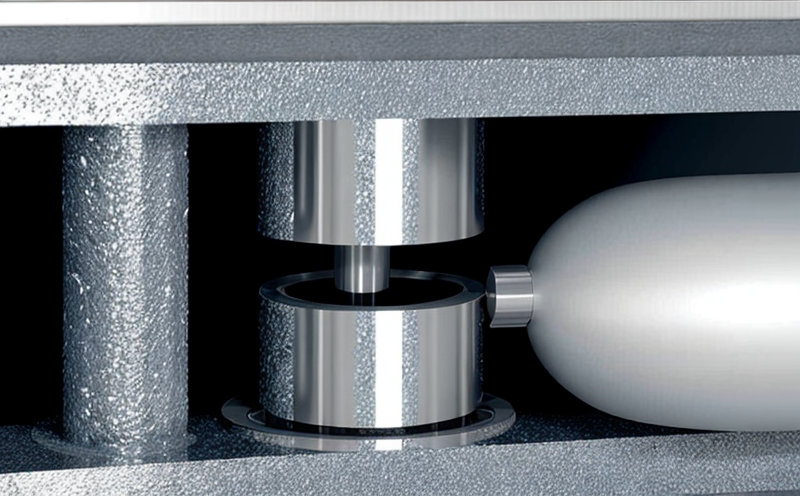J-integral testing for fracture toughness evaluation
Unlock the Secrets of Material Strength J-Integral Testing for Fracture Toughness Evaluation
As a business owner in the manufacturing industry, you understand the importance of material quality and its impact on product reliability and safety. However, even with rigorous testing and inspection protocols in place, materials can still fail due to unforeseen factors such as fatigue, corrosion, or defects. This is where J-integral testing for fracture toughness evaluation comes into play a laboratory service that provides critical insights into the strength and durability of your materials.
What is J-Integral Testing?
J-integral testing is a widely recognized method for evaluating the fracture toughness of materials. Its a non-destructive test that measures the energy required to propagate a crack in a material, providing valuable information on its resistance to crack growth. The test involves subjecting a pre-notched specimen to a controlled loading condition, and then measuring the area under the load-displacement curve using a J-integral calculation.
Why is J-Integral Testing Essential for Businesses?
In todays competitive market, businesses must ensure that their products meet stringent safety and performance standards. Materials with high fracture toughness are essential for industries such as aerospace, automotive, energy, and construction, where failures can have severe consequences. By using J-integral testing, companies can
Assess material reliability Identify potential weaknesses in materials and make informed decisions about material selection, design, and manufacturing processes.
Reduce risk of product failure Minimize the likelihood of material failure by selecting materials with high fracture toughness, reducing downtime, and minimizing costs associated with repairs or replacements.
Comply with regulations Meet industry standards and regulatory requirements for material testing, ensuring compliance with laws and guidelines governing product safety.
Key Benefits of J-Integral Testing
The advantages of using J-integral testing for fracture toughness evaluation are numerous
Accurate results Provide precise measurements of material strength and durability, reducing the risk of errors or misinterpretations.
Cost-effective Reduce costs associated with material failure, downtime, and repairs by identifying potential weaknesses early on.
Improved product safety Enhance product reliability and safety by selecting materials with high fracture toughness.
Increased efficiency Streamline manufacturing processes by selecting materials that meet specific performance requirements.
Competitive advantage Differentiate your business from competitors by demonstrating a commitment to material quality and safety.
How Does J-Integral Testing Work?
The J-integral testing process involves the following steps
Specimen preparation Prepare a pre-notched specimen made of the test material, ensuring that it meets strict quality control standards.
Loading conditions Subject the specimen to controlled loading conditions, typically using a universal testing machine or servohydraulic testing system.
J-integral calculation Measure the area under the load-displacement curve and calculate the J-integral value, which represents the energy required to propagate a crack in the material.
Data analysis Analyze the results, comparing them to industry standards and regulatory requirements.
Frequently Asked Questions (FAQs)
Q What are the limitations of J-integral testing?
A J-integral testing is not suitable for all materials or applications. Its essential to consult with a qualified laboratory expert to determine if this method is applicable for your specific needs.
Q How do I choose the right specimen size and geometry for my material?
A Specimen size and geometry will depend on the material properties, test conditions, and specific requirements of your industry or application. Consult with Eurolabs experienced technicians to select the most suitable configuration for your testing needs.
Q What is the typical time required for J-integral testing?
A The duration of J-integral testing can vary depending on the complexity of the test, material properties, and equipment used. Typically, results are available within 1-3 weeks from specimen receipt.
Q Can I use J-integral testing for materials with complex microstructures or multi-phase composites?
A Yes, J-integral testing is applicable for a wide range of materials, including those with complex microstructures or multi-phase composites. However, its essential to consult with Eurolabs experts to determine the best approach and specimen configuration for your specific material.
Conclusion
In conclusion, J-integral testing for fracture toughness evaluation is an indispensable tool for businesses seeking to ensure product reliability, safety, and compliance with regulatory requirements. By leveraging this laboratory service, companies can reduce risk, minimize costs, and differentiate themselves in a competitive market. At Eurolab, our team of experienced technicians is committed to providing precise measurements, accurate results, and expert guidance to help you unlock the secrets of material strength.
Dont compromise on material quality choose J-integral testing for fracture toughness evaluation with Eurolab. Contact us today to learn more about this laboratory service and how it can benefit your business.




